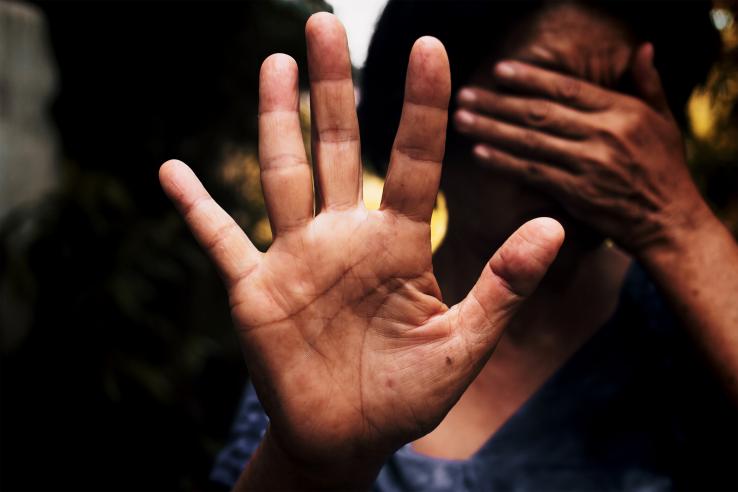The Unseen Toll of GBV Public Hearings: One Woman’s Journey Through Trauma and Healing

“I am so traumatized, I’ve sought spiritual counselling…”
These words, recently shared by Dr Nancy Baraza, echo deeply in the hearts of many who have faced gender-based violence (GBV). They remind us that the path to justice, while necessary, is not always smooth—and can sometimes reopen wounds survivors have spent years trying to heal.
Her story, as captured in a Nation Africa article, isn’t unique. It’s the quiet cry of countless women and men who have stood in front of microphones and commissions, reliving trauma in service of truth and justice.
1. Witnessing Pain Can Reawaken It
Public hearings on GBV are intended to expose injustice and restore dignity. They offer platforms for truth-telling and accountability. But for survivors, the act of testifying—especially in front of strangers—can be profoundly destabilizing. Trauma doesn’t fade on command. A question, a crowd's reaction, or even the sound of one’s own voice recounting past pain can reopen emotional wounds that had scabbed over.
2. Trauma Isn’t Bound by Time
The events survivors speak about may have occurred years—or even decades—ago. Yet, their emotional impact lingers. Survivors often report feelings of anxiety, guilt, nightmares, and depression long after their testimony. In some cases, emotional relapses and suicidal thoughts emerge in the aftermath. That’s because trauma, especially unprocessed trauma, doesn’t age out—it waits in silence until something brings it roaring back.
3. Healing Must Be Holistic
Justice isn’t just a legal matter—it’s a spiritual and psychological one, too. Many survivors seek healing in places outside of the courtroom: faith communities, prayer, rituals, therapy, peer groups. These are not alternative routes—they are essential tools. Survivors often need support that speaks to mind, body, and soul. Ignoring this complexity undermines the entire justice process.
4. Survivor Wellbeing Must Be Central
If public hearings re-traumatize those who come forward, then justice becomes costly—too costly. That’s why it’s vital to:
- Prepare survivors before hearings (with briefings, role-play, and emotional support)
- Use trauma-informed facilitation (gentle questioning, breaks, trigger warnings)
- Offer layered follow-up care (debrief therapy, spiritual counselling, peer support)
Without this, survivors risk becoming secondary casualties of the very process meant to empower them.
5. This Is Our Collective Responsibility
Society has made important strides in encouraging GBV reporting—but our work cannot stop at hearing the stories. Survivors must be supported before, during, and long after their testimonies. It’s a shared responsibility: from justice institutions to communities, to all of us who bear witness.
How Ambulex Is Changing the GBV Space in Kenya
In a world where survivors often feel alone or unsupported, Ambulex is stepping up to transform how we respond to GBV emergencies and trauma.
Ambulex is Kenya’s first emergency GBV response platform, providing end-to-end care for survivors—from the moment of crisis to long-term healing.
Here's How Ambulex Is Making a Difference:
✅ 24/7 Toll Helpline:
📞 0702 898 989 — call anytime to speak to a trained responder.
✅ Emergency Transport for Survivors:
Secure, dignified Ambulance rides to shelters, hospitals, and police stations.
✅ On-Demand Psychological Support:
Access to trauma-informed counsellors and mental health services.
✅ Medical and Legal Referrals:
Quick connection to care centers, legal aid, and safe spaces.
✅ Communal Healing Resources:
Including partnerships with faith leaders and wellness coaches.
📲 Download the Ambulex App
Take back control. Get help fast.
👉 Download the Ambulex App on Playstore
Learn more about Ambulex’s mission:
🌐 ambulexsolutions.org
Final Thought
Public hearings on GBV are necessary—but they must center the survivor’s experience. Testimony should be met with dignity, care, and ongoing support. Justice must heal—not harm.
Until our systems embrace that truth—emotionally, spiritually, and institutionally—we haven’t yet honored the voices we’ve asked to speak.
💬 Trauma isn’t something to simply bear—it’s something to heal.
And with organizations like Ambulex leading the way, that healing is not only possible—it’s already happening.
📞 If you or someone you know is in need of help, call: 0702 898 989 Or
📲 Download the Ambulex App on Playstore and take a step toward safety and support.




_page-0001 (1).jpg)